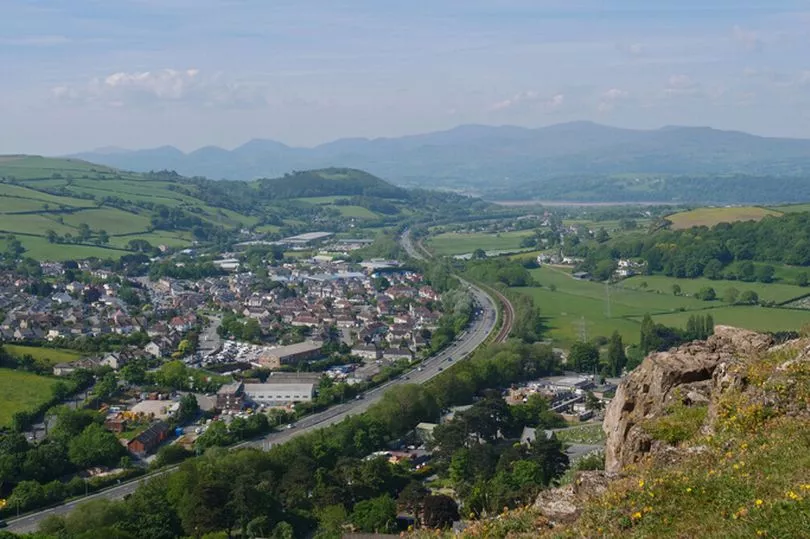Roads? Where we’re going, we don’t need roads! These are the problems with Welsh transport and it’s not simply an issue of building new roads or not
In Wales, our transport plans seem to me to be delivering poor outcomes because we aren’t embracing simple economic principles or technological developments.
We are locked in a car good/car bad mentality so we don’t have a focus on a transport system which enables people to get where they want, when they want, as cheaply as possible, however they want. There are two recent announcements that to me sum up the issues.
Firstly, the roads review that cancelled most road projects and secondly the announcement that the emergency funding for buses had to be withdrawn. I support the point that we don’t need new roads, but only because I think we can use economic principles and technology to launch a transport revolution. It is not because I think we are all going to use public transport. The bus announcement shows we can’t continue to fund ever greater losses on traditional public transport.
I am not a fan of road building. I can see the environmental damage caused, but I do agree that new roads are needed where they are appropriate. I agree that there is an issue of induced demand. I think we drive far too much and that damages our economy and lives. What was strange to me listening to Lee Waters and reading the review was the justification being around climate change, biodiversity and equality.
I get the point on biodiversity, though road building has a small impact compared to agriculture, for example, but the reasons given around climate change and equality don’t fly. On climate change, we know how we are going to decarbonise transport: we are going to electrify it and supply clean electricity. That is it. Over the next decade or so we will electrify all surface transport and that will mean it is very low or zero carbon. As low as rail or bus and getting ever lower.
Building new roads (or not) will make a very small difference either way (on embodied carbon, we are still keen on big building projects, such as rail and tidal barrages, we just need to invest in and support the production of low carbon steel and concrete).
On equality, I worked on the minimum wage without a car. The only thing I wanted to do was get more money so I could get a car to drive on our roads. No investment in bus services or metros was or is going to enable me to easily travel across the whole of Wales. Getting a car was one of the most liberating, equalising experiences of my life. I want to live in a Wales where we can all use a car when we want.
There was a mention of economics, but only in the vague sense, around sustainable supply chains and transport affordability. Nothing about how utterly fundamental roads and vehicles are to generating the wealth we need and want. Nothing about having a focus on how technology and economic principles can unleash economic growth in a clean way.
This brings us to the announcement that the emergency funding that has supported bus services in Wales was to be withdrawn. It has now been extended and will total £200m in support for bus services in the next four years. Bus use has been falling for nearly two decades. There are several causes: growing wealth and access to cars, cheap convenient hailing apps, micro mobility scooters, Covid reducing commuting and perhaps a switch in cities to more cycling. Basically, people have found better ways.
Because buses, like most mass transit, rely on scale, they are in a spiral of decline. Fewer users means fewer services (despite subsidy) means fewer users. This is the problem with the roads review’s reliance on public transport; it is not going to work or can only do so alongside people using a car.
I appreciate there are plans for bus regulation and I am a fan of the metro plans, but they serve small geographies and won’t get me to the Bannau Brycheiniog for a day out, to Southerndown beach or to see my old man.
The amazing thing is that there are so many ways we can improve our transport system in an environmentally friendly way, most of which are not being acknowledged or harnessed by current policy. The real reason we don’t need to build many new roads is that we have so many better ways to use what we have:
- Road use charging: Our roads, (like our electrical networks), have far more capacity than is needed most of the time. For large periods of the day most roads are empty. The issue is that at peak times they can’t cope. The horrifying damage the M4 congestion does to our economy and lives is caused by the fact that we don’t use simple principles of supply and demand. By charging people different amounts to use a car at different times in different places, we could ensure those using roads at peak times really need to do so. This could hugely reduce congestion and the need for road upgrades. Most of the time the cost could be zero and by replacing car tax with road use charging it could be at no net cost to the public. In fairness, road use charging is not easy (technically or politically) and we would need to protect essential users. It probably needs UK government action, but the Welsh Government could start trials with volunteers and make it a clear policy ambition.
- Micro mobility: E-scooters, buggies and bikes will enable almost everyone to travel up to several miles in towns and cities faster than any other method for zero cost, emitting zero pollution. Annoyingly, they still aren’t legal, but they will be. They should be an explicit part of all Welsh and local transport plans. Can we plan cycle lanes to accommodate them? How do we store them at stations? Do we need sharing schemes and safe street storage? What planning policy is needed for new development?
- Hailing apps: Uber and the rest already offer a popular alternative to buses. They take people from where they are to where they want to be. In urban areas they cause congestion (see road use charging) but in rural Ceredigion they could be a lifeline and could be the replacement to buses. In most cases this could be unsubsidised, but some people could receive credits to enable travel. The Fflecsi trial is looking at this, we just need to open the concept of “public transport” to all service providers.
- Car clubs: I admit to being obsessed with car clubs. I cannot get over the sheer scale of the economic and environmental opportunity they present. It is in inverse proportion to the amount of focus they get. Car clubs enable people to use a car parked on their own street and reduce or eliminate the need for many of us to own a car. They would save us a fortune, reduce congestion and solve discussions on car parking. Yet, there is almost no support for them, most new developments don’t include them and there is still only vague talk of them in policy. All urban developments should include a full shared mobility offer and the Welsh Government should be working with providers so that most Welsh people are within 2-3 mins walk of a car club car now. This isn’t happening, partly because of the anti-car sentiment and partly because we have a narrow focus on public transport.
- Cycling: In most of our towns and cities cycling would be a really good way to get around but, despite talk, little has changed. For example, we still have no on-street bike storage in the entire country and you can’t book a bike on a TfW train online in 2023. This is why there has been no change in cycling in my lifetime, despite a blizzard of words.
- Electric cars: Very soon electric cars will be cheaper than any petrol car. By the end of this decade, we will see small run arounds that are perfect for two people going for the same kind of money as a golf buggy (partly because they won’t be much different). Charging cars seems a problem now but if you look at it more broadly electric car charging is easy. Electricity is everywhere and a lot more accessible than petrol. The Welsh Government has a plan to install chargers and there are innovative trials to allow homes street charging. Electricity is super cheap compared to petrol/diesel, mainly because of tax, and that can’t really change. This will be another blow for buses, and, unless they get cheaper, more reliable and faster, trains.
In the longer term these cars will be autonomous and then all bets are off. Congestion could be a historical discussion as freight and deliveries move overnight and algorithms optimise movement. These should all be major aspects of Welsh transport policy. One of the reasons that we don’t see policies to encourage these things is that they don’t suit our politics. On the left they aren’t “public transport”, and on the right, they sound like a threat to private car ownership.

The points above don’t serve either, they will just reduce environmental impact, make us more efficient and wealthier. They just need policy support and tiny amounts of investment. We should be investing in the metros and public transport where there is a future for them but endless subsidy commitments on systems that people are using less and language around equality being used to decry one of the most equalising modes of transport isn’t the way forward.
I am an energy systems man really and the parallels with transport are strong: still too much focus on central control, not enough competition, a need to embrace new technologies and to use policy and regulation to open systems to smarter and cheaper ways of working.
The future of transport is amazing and in a country like ours, where geography and population density has held back our economy, could be hugely liberating, unlock growth and improve our lives. We need to grasp that opportunity.


Leave a Reply